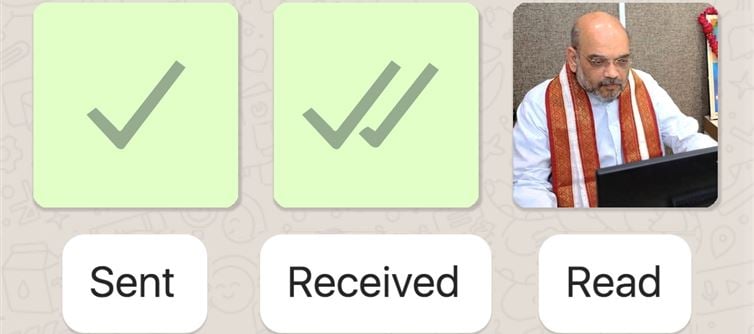
When Zoho launched Arattai, India’s very own homegrown chat app, it promised to be the desi alternative to WhatsApp.
But instead of applause, the internet had other plans.
In a country where privacy is already on life support, Arattai has become the latest meme material — not for innovation, but for its missing end-to-end encryption and “Big Brother vibes”.
Because if your app doesn’t protect your texts, people will start wondering — who’s reading them first?
Spoiler: It’s not your friend.
💬 1. “Read by amit Shah” — The New Double Blue Tick
Netizens went full savage mode after reports claimed Arattai lacked end-to-end encryption, meaning chats could technically be accessible to third parties.
Cue the internet’s finest sarcasm:
“Replace double blue ticks with ‘Read by amit Shah’.”
“Privacy died. Long live surveillance.”
“Desi app, desi monitoring.”
Because what’s more indian than a “Make in India” app that lets the government peek at your jokes?
🕵️♂️ 2. From ‘Atmanirbhar Bharat’ to ‘Atma Beghar Data’
Arattai’s big sell was nationalism — “Why use whatsapp when we have our own?”
But when the so-called alternative skips encryption, it doesn’t feel Atmanirbhar — it feels Atma Beghar (soul homeless).
Users don’t want patriotic apps. They want private ones.
📱 3. Tech Without Trust Is Just Code
In today’s India, wallet PLATFORM' target='_blank' title='digital-Latest Updates, Photos, Videos are a click away, CLICK NOW'>digital privacy is the new luxury.
Between Aadhaar leaks, Pegasus surveillance, and camera-loving governance, every byte of our lives is already under the scanner.
So when an indian app skips the most basic privacy feature, it doesn’t just lose credibility — it loses users before download.
🔥 4. The Irony of Innovation
Zoho CEO sridhar Vembu is known for promoting indian tech self-reliance.
But the internet reminded him of one inconvenient truth — you can’t ask people to “trust local” without earning their trust.
You can build servers in India, but if your servers serve someone else’s interests, the public will call your bluff.
🧠 5. The Meme Economy Responds
Twitter (sorry, X) had a field day:
“No encryption needed when amit shah already knows what you’ll type.”
“Privacy Policy? Just three words: Modi will see.”
“Even my confessions feel less private on Arattai than at my church.”
When satire replaces software updates, your PR crisis has officially started.
⚖️ 6. The Bigger Issue — Privacy ≠ Anti-National
In India, asking for privacy is somehow painted as rebellion.
But here’s the truth: Privacy isn’t anti-national.
It’s anti-surveillance.
And the citizens mocking Arattai aren’t anti-India — they’re anti-intrusion.
🧩 7. The whatsapp Irony
Let’s be honest — even whatsapp isn’t perfect.
But it still offers end-to-end encryption by default.
So when your “desi alternative” can’t even match the basic privacy of a foreign app, you’re not competing with Silicon Valley — you’re competing with CCTV cameras.
💀 8. The Final Blow — Trust Once Lost, Data Forever Gone
Once users start associating your app with surveillance jokes, it’s over.
Digital credibility is like encryption — once broken, you can’t patch it back.
And in Arattai’s case, the memes are already doing what lawsuits and tech exposés couldn’t:
They’ve exposed the lack of trust.
🚨 9. The Hard Truth
The future of indian tech isn’t just about “Made in India.”
It’s about “Safe in India.”
Because what good is a homegrown app if your data still ends up in the wrong home?
⚔️ 10. Final Verdict:
“End-to-End Encryption Missing.”
“Privacy Policy Ambiguous.”
“Public Trust Evaporating.”
Arattai might mean “chat” in Tamil,
But for now, the only conversation happening is about who else is listening.




 click and follow Indiaherald WhatsApp channel
click and follow Indiaherald WhatsApp channel